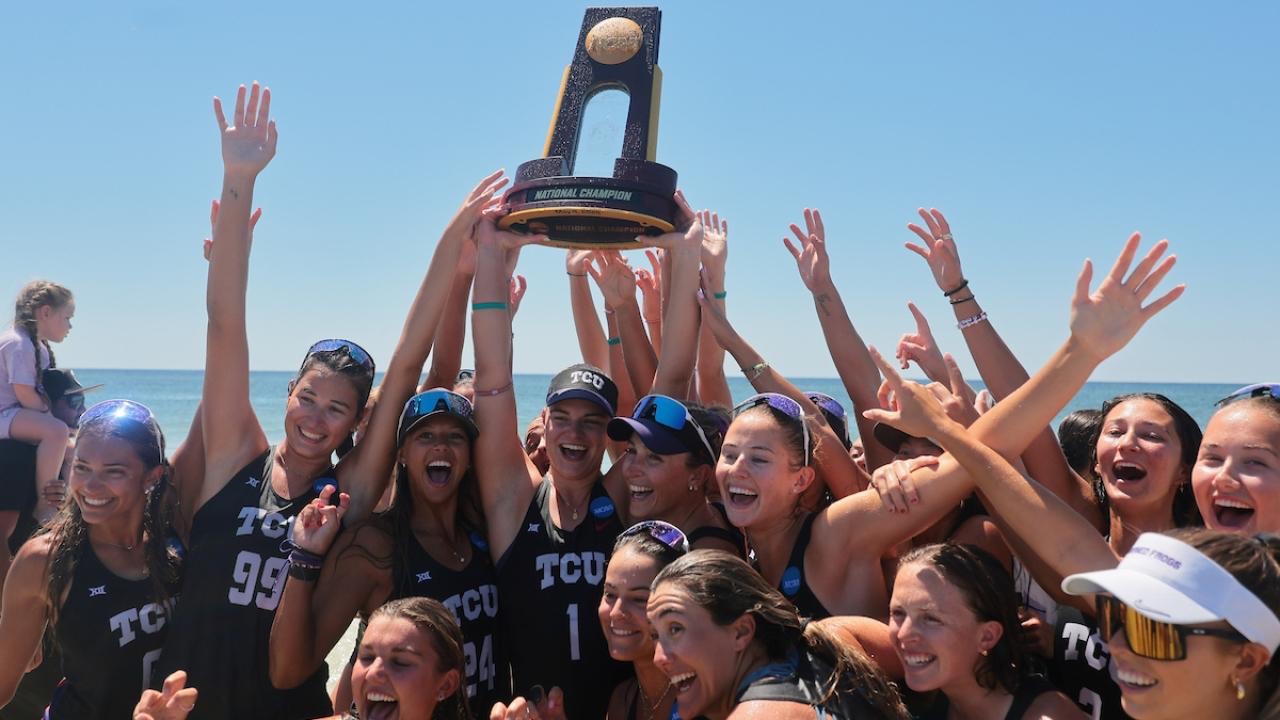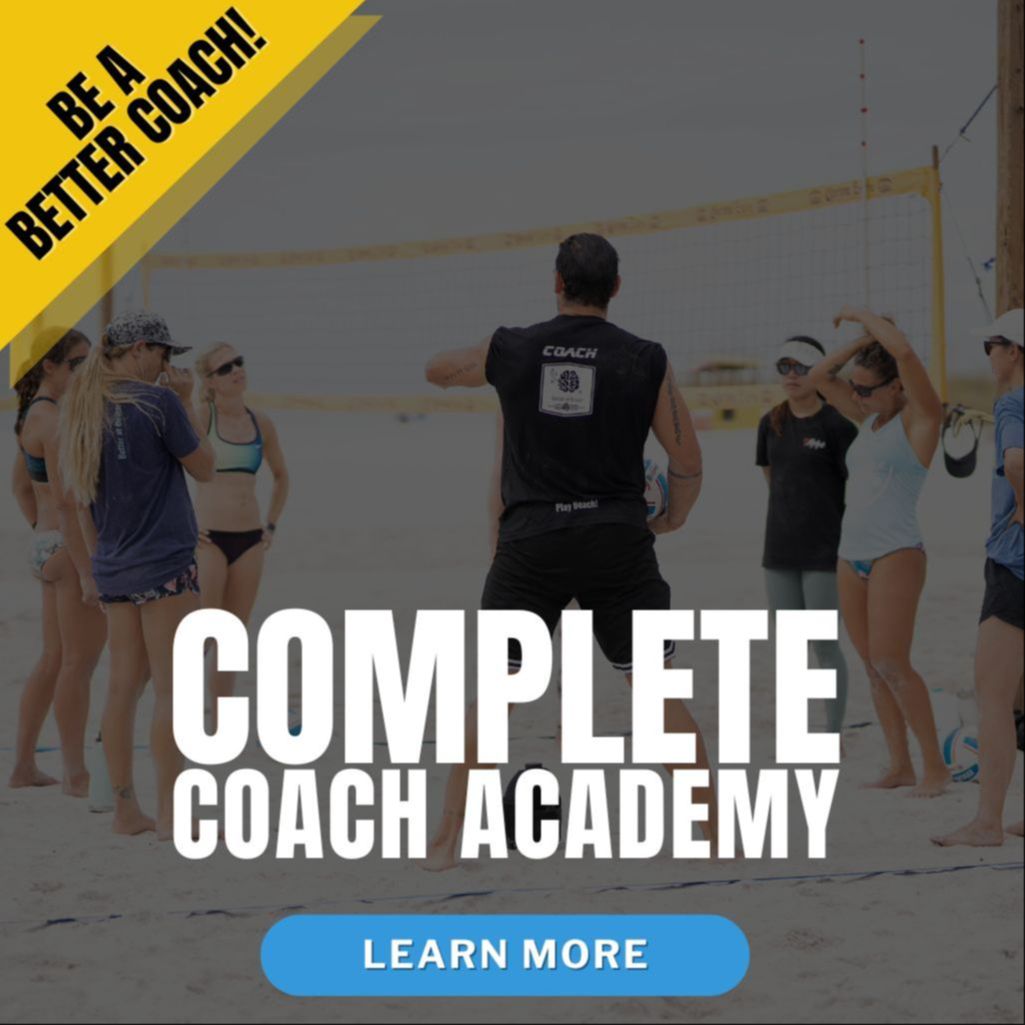
NCAA Beach Volleyball Academic Requirements: What Every Athlete Needs to Know
A step-by-step academic guide from Better at Beach to help your daughter stay eligible and competitive for college beach volleyball.
Many talented beach volleyball players miss out on college opportunities—not because of their skills on the court, but because of what’s missing in the classroom. At Better at Beach, we’ve seen it happen time and again. That’s why we’ve created this clear, actionable guide covering the exact academic requirements for playing NCAA beach volleyball across Divisions I, II, and III.
Get Ready Now!
✅ Core Course Requirements
Division I:
-
16 NCAA-approved core courses completed before senior year
-
4 years of English
-
3 years of Math (Algebra I or higher)
-
2 years of Natural/Physical Science
-
1 year of additional English/Math/Science
-
2 years of Social Science
-
4 years of additional courses (e.g. foreign language, religion)
-
Division II:
-
16 core courses (may be completed through senior year)
-
3 years of English
-
2 years of Math
-
2 years of Science
-
2 additional English/Math/Science
-
2 years of Social Science
-
3 additional academic courses
-
💡 Expert Tip:
“The biggest academic mistake we see is athletes waiting until junior year to focus on grades. By then, their GPA is often too low to recover.”
— Mark Burik, Better at Beach Founder
📊 GPA Standards by Division
Division I:
-
Minimum 2.3 GPA in core courses
-
Must complete 10 core courses before senior year (7 in English, Math, or Science)
-
GPA + SAT/ACT scores must match NCAA's sliding scale
Division II:
-
Minimum 2.2 GPA in core courses
-
Sliding scale also applies
-
All 16 core courses can be completed in senior year
Division III:
-
No NCAA-specific GPA requirements
-
Each school sets its own standards
-
Typically higher academic expectations
🧠 Test Score Requirements
SAT:
-
Only Math and Reading sections are used
-
Super scoring allowed
-
Writing section not considered
ACT:
-
Sum of English, Math, Reading, and Science
-
Super scoring permitted
-
Writing section not used
Both Division I and II use a sliding scale that balances test scores and GPA.
⭐ Success Story:
“Following Better at Beach's academic guidance, my daughter maintained a 3.8 GPA while training 20 hours per week. She received multiple D1 offers and academic scholarships.”
— Rachel T., Parent of Stanford Commit
🗓️ NCAA Eligibility Center Timeline
Freshman Year:
-
Start taking NCAA-approved core courses
-
Track grades from the beginning
-
Create a 4-year academic plan
Sophomore Year:
-
Register with the NCAA Eligibility Center
-
Continue strong core course performance
-
Take practice SAT/ACT
Junior Year:
-
Take official SAT/ACT
-
Submit transcripts to NCAA
-
Update Eligibility Center profile
Senior Year:
-
Finish remaining core courses
-
Submit final transcripts
-
Graduate on time
-
Confirm eligibility status
⚠️ Common Academic Mistakes
❌ Poor Course Selection:
-
Taking non-NCAA-approved classes
-
Prioritizing electives over core classes
-
Missing pre-requisites
❌ Time Management Issues:
-
Neglecting school during tournament season
-
Poor study routines
-
Cramming for tests
❌ Documentation Errors:
-
Incomplete Eligibility Center profiles
-
Missing transcript/test submissions
-
Incorrect course listings
🧩 Academic Success Strategies
📅 Time Management:
-
Use the Better at Beach Student-Athlete Planner
-
Schedule study blocks around practices
-
Turn travel time into study time
🤝 Support Systems:
-
Meet regularly with academic advisors
-
Join study groups
-
Utilize tutoring and school resources
📝 Test Prep:
-
Start early with SAT/ACT prep
-
Identify weak sections
-
Use practice tests
-
Consider online or in-person courses
✅ Ready to Lock In Academic and Athletic Success?
Join our College-Bound Beach Volleyball Success Path for:
-
Comprehensive academic support
-
Expert progress monitoring
-
A clear path to college beach volleyball
🔘 Start Your Journey Now
❓ FAQs
Q: Can low SAT/ACT scores be offset by a high GPA?
A: Yes. The NCAA uses a sliding scale that balances GPA and test scores. We’ll teach you how to optimize both.
Q: What if my daughter’s GPA is already low?
A: We offer GPA improvement strategies and alternative eligibility options for late starters.
Q: Are AP or IB classes required?
A: No, but they strengthen academic resumes and show college readiness.


